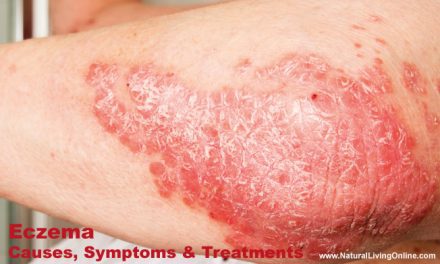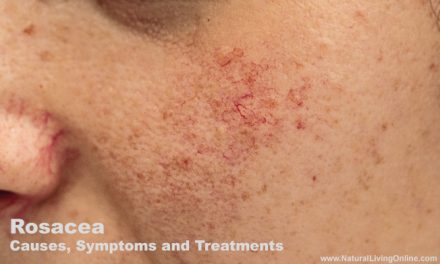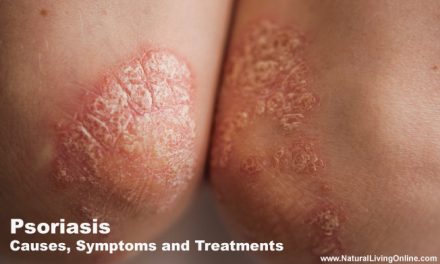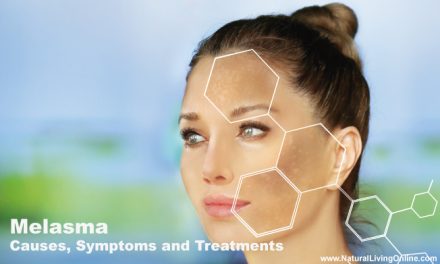Acne is one of the most common skin conditions, affecting almost 85% of people between the ages of 12 and 24. It appears as pimples, blackheads, whiteheads, or other blemishes on the face, chest, back and shoulders. Acne is caused by a combination of factors including hormones, genetics, bacteria, and clogged pores.
Types of Acne
- Blackheads: small, dark spots on the skin that occur when pores become clogged with oil and dead skin cells
- Whiteheads: small, raised bumps on the skin that occur when pores become clogged with oil and dead skin cells
- Papules: small, red, tender bumps on the skin that may be painful to the touch
- Pustules: similar to papules, but with a visible white or yellow center
- Nodules: large, painful bumps that form deep within the skin
- Cysts: large, painful bumps that are filled with pus and may cause scarring
Treatment
Acne can be treated with a variety of methods depending on the severity and cause. Over-the-counter medications, such as benzoyl peroxide, salicylic acid, or tea tree oil, can help reduce acne breakouts. If over-the-counter medications are not enough to manage the condition, prescription medications may be necessary. These can include antibiotics, hormonal therapies, or retinoids. In severe cases, laser treatments and chemical peels may be used to reduce inflammation and improve the appearance of the skin. Additionally, lifestyle modifications such as reducing stress or avoiding certain foods may also help reduce acne breakouts.
Regardless of how it is treated, it is important to note that acne is a chronic condition and may take time to respond to treatment. It is important to be patient and consistent in order to see the best results. With proper treatment, it is possible to reduce or even eliminate acne breakouts altogether. It is best to see a dermatologist for a personalized treatment plan to ensure the best results.
Herbal remedies for acne
Herbal remedies have been used for centuries to treat a variety of skin conditions, including acne. There is some evidence that certain herbs can be beneficial in helping to reduce the symptoms of acne. These herbs may help reduce inflammation, balance hormones, reduce bacteria on the skin, and detoxify the body.
Tea Tree Oil
Tea tree oil is a natural remedy that can help with acne treatment and prevention. It has anti-inflammatory, antimicrobial, and anti-fungal properties which can reduce inflammation, redness, swelling and itching associated with acne. Tea tree oil can also reduce the number of bacteria on the skin which helps to prevent breakouts. To use tea tree oil for acne treatment, you should apply a few drops of the oil to a cotton swab and then gently dab onto the affected area. Be sure to avoid contact with eyes, mouth, and other sensitive areas. Leave on for 10-15 minutes before wiping away excess. It’s best to use tea tree oil only after consulting with your dermatologist or healthcare provider as it may cause skin irritation in some people. Also, be sure to use a diluted solution of tea tree oil and not the full strength version as this can be too strong for the skin. With consistent use, you should see improvements in your acne symptoms over time.
Aloe Vera
Aloe Vera is a miracle plant that has many natural healing properties. It can help to treat and prevent acne flare-ups in a variety of ways. Aloe vera contains anti-inflammatory and antibacterial compounds that work together to reduce redness and swelling associated with breakouts. It also helps to regulate the production of sebum, which can help to keep the skin hydrated and balanced.
Using aloe vera on a regular basis as part of your skincare routine is one of the best ways to reduce acne breakouts. You can use it as a mask, spot treatment, or moisturizer. To make an aloe vera mask, simply mix together 2 tablespoons of aloe vera gel and 1 tablespoon of honey. Apply the mask to your skin for 15 minutes before rinsing off with warm water. You can also use aloe vera as a spot treatment for breakouts by applying it directly onto the affected areas. Finally, you can use pure aloe vera gel as a daily moisturizer to help keep your skin hydrated and balanced.
It is important to note that aloe vera should not be used as a standalone acne treatment, as it may not be powerful enough to combat severe cases. However, when combined with other treatments such as topical medications or light therapies, aloe vera can provide a natural, gentle alternative to help reduce acne breakouts. Additionally, aloe vera is incredibly gentle and unlikely to cause irritation so it can safely be used on all skin types.
Neem
Neem has long been used in traditional medicine to treat acne. It contains a number of compounds that have anti-inflammatory, antifungal, antibacterial and antiviral properties, making it an effective treatment for acne. It can be used in the form of neem oil or applied topically as a paste or cream. To use neem for acne, simply massage the oil into your skin. You can also mix neem powder with water or a carrier oil to create a paste and apply it directly to the affected area. Leave it on for 20 minutes before washing off with warm water. Additionally, you can prepare a face mask by combining neem powder, honey and yogurt and applying it directly to the skin. Leave it on for 20 minutes then wash off with warm water. Doing this twice per week can help reduce and eliminate acne.
It is important to remember that using neem only addresses the symptom of acne, not the underlying cause. If you are experiencing persistent or severe acne, speak to your doctor about other treatments that can be used to address the root cause. They may recommend medications or lifestyle changes. With the right treatment, it is possible to get rid of acne for good.
Turmeric
Turmeric is a popular home remedy for treating acne. Its anti-inflammatory and antibacterial properties may reduce redness, swelling, and inflammation from acne lesions. It can also help to dry out blackheads and whiteheads. To use turmeric as an acne treatment, mix 1 teaspoon of turmeric powder with 2 tablespoons of plain yogurt or water. Spread the mixture onto your skin and leave it on for 10 to 15 minutes before rinsing off with lukewarm water. Apply this mask 1-2 times per week to treat acne. Additionally, you can also try taking turmeric supplements if you’d like an extra boost of acne-fighting power. However, make sure to consult with your doctor first before taking any supplements.
Witch Hazel
Witch Hazel is an age-old remedy for acne treatment. It has antiseptic, astringent and anti-inflammatory properties that help dry out pimples, reduce oiliness and soothe the skin. Witch Hazel is available in its purest form or as a toner or cream. To use it as part of your acne treatment regimen, apply a small amount of pure Witch Hazel to the affected areas using a cotton pad or swab. Leave it on for 10-15 minutes and then rinse off thoroughly with warm water. You can also opt for toners or creams that contain Witch Hazel as one of their active ingredients. These products can be used twice daily – once in the morning, and once in the evening. When using these products, follow the instructions on the label carefully. Be sure to use a moisturizer after every Witch Hazel treatment to prevent dryness or irritation. With consistent and regular use, you can expect to see results within a few weeks of starting your acne treatment regimen with Witch Hazel. It is important to remember that results may vary from person to person. If you don’t see any improvement after a few weeks, consult your dermatologist for other acne treatment options.
Precautions and considerations
Herbal remedies can be an effective way to treat acne and other skin problems, but they should always be used with caution. It is important to understand the potential risks associated with these treatments and take precautions to ensure that you get the best results possible.
Firstly, always research herbs thoroughly before using them for treatment. Make sure you understand what the active ingredients are, as well as any potential side effects or interactions with other medications. It is also important to consult with a qualified health care professional before using herbal remedies to ensure that they are safe and appropriate for your individual needs.
When using herbal remedies, it is important to be aware of proper dosage instructions and never exceed the recommended dose. It is also important to use only high-quality products from reputable sources and keep the remedies away from children and pets.
Finally, be sure to monitor your skin closely for any signs of irritation or other adverse reactions. If you experience any side effects, stop using the herbal remedy immediately and consult a health care provider if necessary. By taking these precautions, you can help to ensure that your herbal remedies for acne are safe and effective.
Other Considerations During Acne Breakouts
Use mild cleansers when washing face which are free from harsh chemicals
Avoid touching your face too much
Ensure you get adequate amounts of sleep each night
Wear sweat-absorbent fabrics
Eat a balanced diet with plenty of fruits and vegetables
Seek professional advice if needed
Consider seeing a dermatologist for more serious cases
Conclusion
Herbal remedies can be an effective way to treat acne, but it is important to understand the potential risks and take precautions when using them. Make sure to research each herb carefully before using, consult with a qualified health care professional and never exceed the recommended dose. In conjunction with these treatments, make sure you are practicing good personal hygiene habits such as washing your face with mild cleansers and avoiding touching your face too much, in order to get the best results possible. Lastly, if you are experiencing more severe acne problems, it is important to seek professional medical advice. With proper use and care, these herbal remedies can help reduce breakouts and improve the overall health of your skin.
Frequently Asked Questions
What causes Acne?
Acne is caused by a variety of factors, including hormonal imbalances, genetics, diet, stress, and certain skincare products.
How can I prevent acne?
There are several steps you can take to help prevent acne:
Keep your skin clean by washing your face twice a day with a gentle cleanser.
Avoid picking or squeezing acne lesions, as this can make them worse and lead to scarring.
Use non-comedogenic skincare products and makeup to help prevent clogging of the pores.
Eat a healthy, balanced diet and drink plenty of water to help keep your skin healthy.
Avoid stress as much as possible, as stress can contribute to acne breakouts.
Can acne be cured?
There is no cure for acne, but it can be managed and controlled with the right treatment plan. It is important to work with a dermatologist or healthcare provider to determine the best treatment plan for your individual needs.
Can stress cause acne?
Stress can contribute to acne breakouts, as it can cause an increase in the production of hormones called cortisol and androgens, which can lead to an increase in oil production and inflammation in the skin.
Is it safe to use acne medications during pregnancy?
It is important to consult with a healthcare provider before using any medications, including acne medications, during pregnancy. Some acne medications, such as topical retinoids, are not recommended for use during pregnancy due to the potential risk of birth defects.
Can acne scars be treated?
Acne scars can be treated with a variety of methods, including laser treatments, chemical peels, and dermal fillers. It is important to consult with a dermatologist or healthcare provider to determine the best treatment option for your individual needs.
Is it safe to use acne medications on sensitive skin?
It is important to be cautious when using acne medications on sensitive skin. It may be helpful to start with a lower concentration of the medication and gradually increase it as tolerated.
References:
Medicinal Plants for the Treatment of Acne Vulgaris: A Review of Recent Evidences
Herbal Remedies for Acne Vulgaris from the Viewpoint of Persian Medicine
Complementary therapies for acne vulgaris
Seeking new acne treatment from natural products, devices and synthetic drug discovery
Herbal Treatment for Dermatologic Disorders
This website does not provide medical advice.
All information provided on this website, and on associated social media networks, including but not limited to texts, images, and numbers are for general information purpose only. It is not intended as medical advice and it does not include all possible precautions, side effects, or interactions that may occur. Neither NaturalLivingOnline.com nor its author/founder take responsibility for how you use this information. Statements contained on NaturalLivingOnline.com have not been evaluated by the FDA. You should conduct thorough research via multiple sources and consult your physician or qualified doctor before using any essential oil or herbal remedy. Information on NaturalLivingOnline.com must not be relied upon for medical, legal, financial or other decisions.













